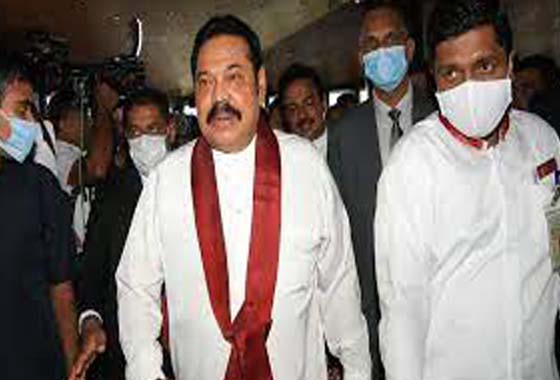
Sri Lanka PM Mahinda Quits: curfew imposed
Colombo: Sri Lankan Prime Minister Mahinda Rajapaksa resigned for his post due to clashes between the pro and anti-Government groups on Monday. Government imposed curfew in the country to control the situation.
Prime Minister Mahinda Rajapaksa submitted resignation letter to President Gotabaya Rajapaksa to make an all party Government. In his letter Mahinda said he resignation with immediate effect so that you will be able to appoint an all-party government to guide the country out of the current economic crisis.
A ruling party MP died and many were injured. The hugest clashes since the economic crisis hit the Sri Lanka, when supporters of the Rajapaksa family went on the rampage. The loyalists attacked unarmed protesters camping outside the President’s office in downtown Colombo since April 9th.
The protesters hit back, setting fire to buses, destroying the memorial built for the parents of President Gotabaya Rajapaksa and his brother Mahinda Rajapaksa and setting ablaze their family home in Hambantota, around 250 km from Colombo. The houses of three former Ministers and two MPs were also torched. Two protesters wounded after MP Amarakeerthi Athukorala opened fire blocking his car in Nittambuwa and was later found dead after trying to take refuge in a nearby building, officers said.
The police fired tear gas shells and water cannon and declared an immediate curfew in Colombo, which was later widened to span the country of 22 million people. At least 100 injured people have been hospitalized. President Rajapaksa said the curfew will be in place till 7 am on Tuesday.
Mahinda Rajapaksa (76) had sent his letter of resignation to his younger brother, President Gotabaya Rajapaksa, clearing the way for anew unity Government. At least two cabinet ministers have also stepped down. The cabinet now stands dissolved. The largest opposition party has refused to join any Government headed by a member of the Rajapaksa clan.
Sri Lanka has suffered months of blackouts and dire shortages of food, fuel and medicines in its worst economic crisis since independence, sparking weeks of overwhelmingly peaceful anti-government demonstrations.